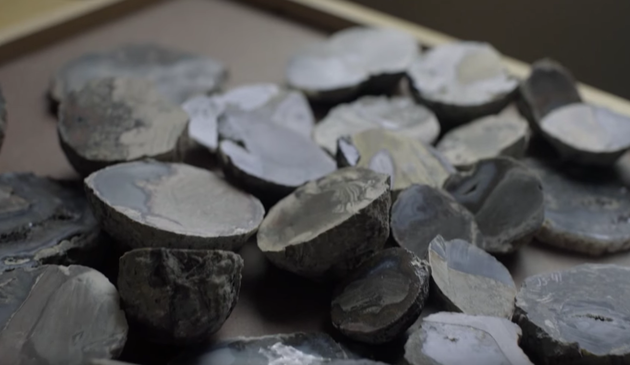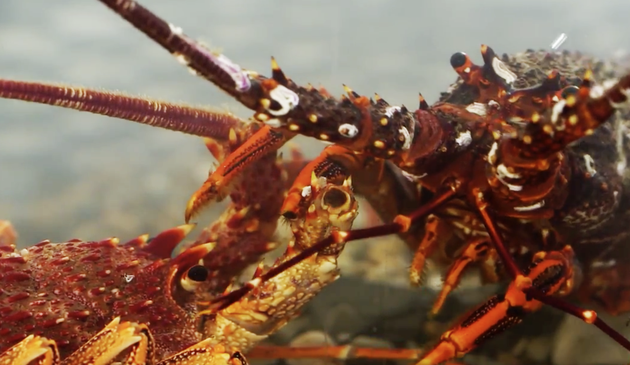Two University of Tasmania projects – one studying life and death in our oceans and the other mapping the distribution of marine species – have been shortlisted for the prestigious Australian Museum Eureka Prizes, which celebrate excellence in science.
The Australian Museum Eureka Prize was established in 1990 to reward outstanding achievements in Australian science and science communication and is considered to be one of the most comprehensive national science awards.
Distinguished Professor of Economic Geology Ross Large, from the Australian Research Council Centre of Excellence in Ore Deposits (CODES), and Institute for Marine and Antarctic Studies (IMAS) Associate Professor Gretta Pecl led the successful teams, which have been announced as finalists.
Professor Large who is is internationally renowned in ore deposit geology said the shortlisting was recognition for the efforts of the multi-disciplinary group, which covers the fields of geology, oceanography, palaeontology, toxicology and evolution biology, and their laboratories.
The Trace Elements in Past Oceans (TEPO) project is a multidisciplinary research collaboration utilising analytical chemistry, geology, palaeontology, evolutionary biology and toxicology. The project is contributing to a step change in understanding the connections between plate tectonics, past ocean chemistry and the evolution and extinction of life on Earth.
“It demonstrates we are doing world-class research in vitally important areas of understanding, including the evolution of life,” he said.
Associate Professor Gretta Pecl and her team – including national coordinator Dr Jemina Stuart-Smith, communications officer Yvette Barry and senior technical advisor Peter Walsh – have been shortlisted for the Department of Industry, Innovation and Science Eureka Prize for Innovation in Citizen Science for their Redmap Australia project.
“Redmap Australia is an innovative collaboration between over 80 scientists, thousands of citizen scientists and 15 institutes around the country, which is providing an early indication of how our marine ecosystems are changing so we are better prepared to adapt to these changes,” she said.
The project engages the public in co-production of knowledge on how the distribution of marine species may be impacted by climate change. Redmap Australia generates thousands of conversations between individual scientists and citizen scientists around Australia as a collaborative project.
Professor Pecl said the shortlisting
was a welcome acknowledgement of the significant contributions many fishers, divers, boaters and scientists around Australia had made towards understanding the effects of marine climate change.
This is not the first time University of Tasmania research has been acknowledged by the awards, winning Eureka Prizes in 2013 and 2014 for its dingo research and Reef Life Survey projects respectively.
The 2016 awards will be announced at a gala dinner in Sydney on 31 August.
For the full shortlist and more information about the awards, visit: http://australianmuseum.net.au/eureka
Interested in conducting your own research? Apply now to become a research student.

